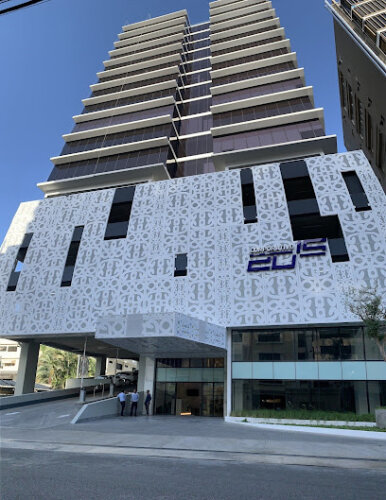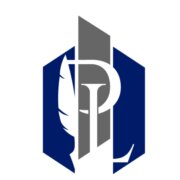Best Licensing Lawyers in Santo Domingo
Share your needs with us, get contacted by law firms.
Free. Takes 2 min.
List of the best lawyers in Santo Domingo, Dominican Republic
About Licensing Law in Santo Domingo, Dominican Republic:
Licensing in Santo Domingo, Dominican Republic, refers to the process of obtaining permission from the government to engage in certain activities or professions. This can include obtaining a business license, a professional license, or a permit to operate in a specific industry. Licensing laws are in place to regulate and monitor various activities to protect consumers, ensure public safety, and maintain order in the marketplace.
Why You May Need a Lawyer:
You may need a lawyer in Santo Domingo, Dominican Republic, for licensing matters if you are facing legal issues related to obtaining or renewing a license, facing disciplinary action from a licensing board, or seeking guidance on compliance with licensing laws and regulations. A lawyer can help navigate the complex legal requirements, represent your interests before licensing authorities, and ensure that you adhere to all applicable laws and regulations.
Local Laws Overview:
In Santo Domingo, Dominican Republic, licensing laws are governed by various statutes, regulations, and administrative rules. The key aspects of local laws that are particularly relevant to licensing include the licensing requirements for different professions and industries, the application process for obtaining a license, the renewal and revocation of licenses, and the disciplinary actions that may be imposed for violations of licensing laws.
Frequently Asked Questions:
Q: How do I apply for a business license in Santo Domingo, Dominican Republic?
A: To apply for a business license in Santo Domingo, Dominican Republic, you must submit an application to the relevant licensing authority along with any required documentation and fees. The specific requirements may vary depending on the type of business you are operating.
Q: What are the consequences of operating without a valid license in Santo Domingo?
A: Operating without a valid license in Santo Domingo, Dominican Republic, can result in fines, penalties, and even the closure of your business. It is important to ensure that you are in compliance with all licensing requirements to avoid legal consequences.
Q: How can a lawyer help me with my licensing issues in Santo Domingo?
A: A lawyer can provide legal advice and representation for licensing issues in Santo Domingo, Dominican Republic. They can help you understand your rights and obligations, guide you through the licensing process, and represent your interests in dealings with licensing authorities.
Q: Can a lawyer help me appeal a decision by a licensing board in Santo Domingo?
A: Yes, a lawyer can help you appeal a decision by a licensing board in Santo Domingo, Dominican Republic. They can advocate on your behalf, gather evidence to support your appeal, and represent you in any hearings or proceedings related to the appeal.
Q: Are there specific requirements for obtaining a professional license in Santo Domingo?
A: Yes, there are specific requirements for obtaining a professional license in Santo Domingo, Dominican Republic. These requirements may include completing education or training programs, passing exams, and meeting any other criteria set forth by the licensing authority for your profession.
Q: How often do I need to renew my business license in Santo Domingo?
A: The renewal period for a business license in Santo Domingo, Dominican Republic, may vary depending on the type of business and the licensing authority. It is essential to be aware of the renewal requirements and deadlines to avoid any lapses in licensing.
Q: What are the steps involved in responding to a notice of violation from a licensing authority in Santo Domingo?
A: If you receive a notice of violation from a licensing authority in Santo Domingo, Dominican Republic, it is crucial to seek legal advice promptly. A lawyer can help you understand the allegations against you, gather evidence to support your defense, and respond to the notice in a timely and appropriate manner.
Q: Can a lawyer help me negotiate a settlement with a licensing authority in Santo Domingo?
A: Yes, a lawyer can help you negotiate a settlement with a licensing authority in Santo Domingo, Dominican Republic. They can represent your interests in settlement negotiations, advocate on your behalf, and help you reach a resolution that is favorable to you.
Q: What are the common reasons for license revocation in Santo Domingo?
A: Common reasons for license revocation in Santo Domingo, Dominican Republic, may include non-compliance with licensing requirements, engaging in fraudulent activities, violating laws or regulations, or failing to meet the standards of professional conduct set forth by the licensing authority.
Q: How can I verify the validity of a license issued in Santo Domingo?
A: To verify the validity of a license issued in Santo Domingo, Dominican Republic, you can contact the relevant licensing authority or visit their website to access a database of licensed professionals and businesses. It is essential to ensure that any licenses you rely on are current and in good standing.
Additional Resources:
For more information about licensing in Santo Domingo, Dominican Republic, you can contact the Ministry of Industry, Commerce, and Small Business or consult the website of the Chamber of Commerce and Production. These organizations can provide guidance on licensing requirements, procedures, and resources available to help you navigate the licensing process.
Next Steps:
If you require legal assistance with licensing issues in Santo Domingo, Dominican Republic, it is advisable to seek the advice of a qualified lawyer with experience in licensing law. A lawyer can assess your situation, provide legal counsel, and represent your interests in dealings with licensing authorities to ensure that your rights are protected and that you comply with all applicable laws and regulations.
Lawzana helps you find the best lawyers and law firms in Santo Domingo through a curated and pre-screened list of qualified legal professionals. Our platform offers rankings and detailed profiles of attorneys and law firms, allowing you to compare based on practice areas, including Licensing, experience, and client feedback.
Each profile includes a description of the firm's areas of practice, client reviews, team members and partners, year of establishment, spoken languages, office locations, contact information, social media presence, and any published articles or resources. Most firms on our platform speak English and are experienced in both local and international legal matters.
Get a quote from top-rated law firms in Santo Domingo, Dominican Republic — quickly, securely, and without unnecessary hassle.
Disclaimer:
The information provided on this page is for general informational purposes only and does not constitute legal advice. While we strive to ensure the accuracy and relevance of the content, legal information may change over time, and interpretations of the law can vary. You should always consult with a qualified legal professional for advice specific to your situation.
We disclaim all liability for actions taken or not taken based on the content of this page. If you believe any information is incorrect or outdated, please contact us, and we will review and update it where appropriate.















